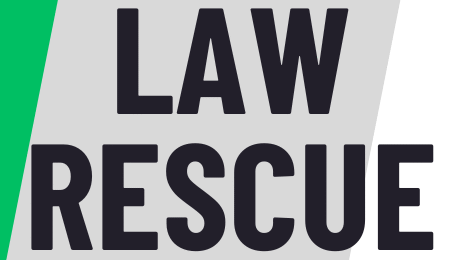Did you know many people rush into hiring a lawyer without doing their homework? This can lead to costly mistakes and a less-than-desirable outcome.
Choosing the right legal counsel is crucial after an accident. You need an Injury Lawyer who understands your needs and has the expertise to handle your case effectively.
To get the best representation, it’s essential to avoid common pitfalls when selecting an Accident Attorney. In this article, we’ll discuss the top tips to help you make an informed decision and ensure you receive the compensation you deserve.
Understanding What a Personal Injury Attorney Does
If you’ve been hurt because of someone else’s mistake, a personal injury attorney can help a lot. They focus on getting you money for your injuries.
The Role of a Personal Injury Attorney in Your Case
A personal injury attorney is key in your case. They look into your claim, collect evidence, and talk to insurance companies. They also stand up for you in court, making sure your rights are respected.
Types of Cases Personal Injury Attorneys Handle
Personal injury attorneys deal with many cases. This includes accidents, injuries, and cases of negligence. They know how to handle complex situations.
Car and Vehicle Accidents
Car accident attorneys work on cases where cars crash. They help victims get money for their injuries and for damage to their property.
Workplace Injuries
For work injuries, personal injury attorneys help with workers’ compensation claims. They make sure injured workers get the benefits they need.
Medical Malpractice
In medical malpractice cases, attorneys fight for victims. They seek compensation for the harm caused by doctors or hospitals.
Why the Right Personal Injury Attorney Matters
Choosing the right personal injury attorney is key to your case’s success. The lawyer you pick can greatly affect how much money you get. It’s important to find someone who knows a lot about personal injury cases.
The Impact of Legal Representation on Case Outcomes
Your case’s success depends a lot on your lawyer’s skills. A good lawyer knows how to deal with the legal system. They can also negotiate with insurance companies to get you a fair deal.
On the other hand, a bad lawyer can hurt your case. They might not get you enough money or even lose your case.
Financial Implications of Choosing the Wrong Attorney
Choosing the wrong lawyer can cost you a lot of money. You might get less money, and you could also spend more on your case. A good lawyer will help you get as much money as possible.
This way, you can get the help you need to heal from your injuries.
| Aspect | Right Attorney | Wrong Attorney |
|---|---|---|
| Case Outcome | Favorable settlement or verdict | Reduced compensation or case dismissal |
| Financial Impact | Maximized compensation | Lower compensation, additional costs |
Common Mistakes People Make When Hiring an Injury Lawyer
Finding the right injury lawyer can be tough, especially if you don’t know what to watch out for. Many people make big mistakes when picking a lawyer after an accident. These mistakes can really hurt your case’s chances of winning.
Rushing the Selection Process
One big mistake is rushing to pick a lawyer. It’s important to take your time to look around and choose wisely. If you rush, you might end up with a lawyer who doesn’t do a good job for you.
Choosing Based on Advertisements Alone
Another mistake is picking a lawyer just because of their ads. Ads can be a good start, but they’re not everything. You should also look at a lawyer’s experience, how they’re seen by others, and if they know a lot about your kind of case.
| Criteria | Importance | What to Look For |
|---|---|---|
| Experience | High | Years of practice, case history |
| Reputation | High | Client reviews, peer ratings |
| Expertise | High | Specialization in injury law |
Ignoring Red Flags During Initial Consultations
Ignoring warning signs during first meetings is a big mistake. Notice how the lawyer talks to you, if they answer your questions well, and how they plan to help you. Trust your instincts and get a second opinion if something doesn’t feel right.
Knowing these common mistakes can help you make a better choice when picking an injury lawyer. Take your time, do your homework, and ask lots of questions. This way, you’ll find the best lawyer for your case.
10 Tips Before Choosing the Right Personal Injury Attorney
When to Start Looking for a Personal Injury Attorney
After an accident, knowing when to get a Personal Injury Attorney is key. It can greatly affect your case’s outcome. The right time to hire a lawyer is important. It helps you collect evidence, handle insurance, and understand legal steps.
Ideal Timeline After an Accident
It’s best to talk to a Personal Injury Attorney right after an accident. This way, you can handle your case well. Look for an attorney as soon as you can. This ensures you keep important evidence and meet deadlines.
Understanding Statutes of Limitations
Knowing the Statutes of Limitations is crucial. These laws set a time limit for filing a lawsuit. The time allowed varies by state. So, it’s important to talk to an Accident Attorney who knows your state’s laws.
State-by-State Variations
Statutes of Limitations change from state to state. For example, some states give you two years, while others give more or less time. Here’s a table showing some state variations:
| State | Statute of Limitations |
|---|---|
| California | 2 years |
| New York | 3 years |
| Florida | 4 years |
Exceptions to Standard Timelines
While Statutes of Limitations set a general rule, there are exceptions. For example, if you’re a minor, the clock might not start until you’re an adult. If the defendant moves away, the clock might pause until they return.
Assessing Your Specific Legal Needs
Choosing the right Legal Counsel is key. You need to understand your case well. This helps find the right Accident Attorney or Compensation Lawyer for you.

Choosing a Personal Injury Attorney
Identifying the Type of Accident Case You Have
First, figure out what kind of accident you had. It could be a car crash, a workplace injury, or a slip and fall. Knowing this helps find a lawyer with the right experience.
- Car accidents involving multiple parties or significant injuries
- Workplace injuries, including those related to occupational diseases
- Slip and fall incidents on private or public property
Determining Case Complexity and Required Expertise
Next, think about how complex your case is. Cases with serious injuries or complex issues need experienced lawyers.
Look at these factors for case complexity:
- The severity and long-term impact of your injuries
- The clarity of liability and potential for dispute
- The amount of damages involved and their nature (economic, non-economic)
Researching Potential Personal Injury Attorneys
Looking for the right Personal Injury Attorney is key to getting great help. With many lawyers out there, it’s important to know how to find and check them.
Effective Online Research Strategies
Start by searching online with keywords like “car accident lawyer” or “slip and fall attorney.” This helps find lawyers who know your case well. Use online directories and review sites too.
But, be careful with online reviews. They might not tell the whole story. Look for common themes in the reviews, like praise for communication or criticism of response time.
Utilizing Bar Association Resources
The American Bar Association (ABA) and state bar associations are great resources. They list certified attorneys and share info on lawyer discipline and complaints.
Check if the lawyer is in professional groups like the American Association for Justice. This shows they keep up with personal injury law changes.
Getting Recommendations from Trusted Sources
Don’t just rely on online searches. Ask friends, family, or coworkers for advice. They might have personal experiences or know someone who does.
Also, talk to other lawyers you trust. They might have good suggestions or insights.
Evaluating Attorney Experience and Specialization
When you’ve been hurt because of someone else’s mistake, you need a good lawyer. They should know the law well and have won cases like yours before.
Why Specialization in Personal Injury Law Matters
Personal injury law is very complex. A lawyer who only deals with these cases knows the latest laws and strategies. This means they can fight for you better.
Questions to Ask About Previous Case Experience
When you meet a lawyer, ask about their past cases. This shows if they know what they’re doing and how they’ll help you.
Similar Case History
Find out if they’ve worked on cases like yours. Their experience with similar cases shows they can handle your case well.
Success Rates and Outcomes
Ask about their win rates and past case results. While past wins don’t promise future success, they show the lawyer’s skills and strategies.
| Criteria | What to Look For | Why It Matters |
|---|---|---|
| Experience | Years of practice, number of cases handled | More experienced attorneys may have a deeper understanding of the law and courtroom procedures. |
| Specialization | Focus on personal injury law, specific areas of expertise | Specialized knowledge can lead to more effective representation. |
| Case History | Similar cases, success rates | Provides insight into the attorney’s ability to handle your type of case. |
Investigating an Attorney’s Track Record and Results
When you’re looking for a Personal Injury Attorney, it’s key to check their track record. Look beyond ads and into the real results they’ve gotten for clients. A good track record shows they’re skilled and effective.
To check an attorney’s settlement and trial history, you can:
- Ask for specific case examples during consultations
- Check online reviews and testimonials for patterns of success
- Research public records or court databases for trial outcomes
- Contact previous clients, if possible, to inquire about their experiences
How to Verify Settlement and Trial History
To find out about a Trial Lawyer’s settlement and trial history, you need to do some digging. Ask them about their past cases, like the types of cases, the compensation, and if they were settled or went to trial. This info helps you see if they’re experienced and successful in cases like yours.
Understanding What Makes a Successful Case Record
A successful case record for a Personal Injury Attorney is more than just winning cases. It’s about the quality of those wins. It includes the complexity of cases, the compensation secured, and the lawyer’s skill in tough legal situations.
By looking at these details, you can really understand a Compensation Lawyer’s abilities. This helps you make a smart choice about who to represent you.
The Importance of Personal Compatibility with Your Legal Counsel
Choosing a personal injury attorney is more than just looking at their credentials. It’s about finding someone you can trust and talk to easily. Your relationship with your legal counsel can really affect how your case goes.
Communication Style and Accessibility
How well your attorney communicates and how easy they are to reach matters a lot. You want an accident attorney who answers your questions quickly and keeps you updated on your case.
Trust and Comfort Factors in the Attorney-Client Relationship
Trust and feeling comfortable are key to a good working relationship with your attorney. You should feel okay talking about your case with your personal injury attorney. This comfort helps you work together better towards a good outcome.
Putting personal compatibility first makes the legal process easier and less stressful for you.
Understanding Fee Structures and Payment Arrangements
When picking a personal injury attorney, it’s important to look at their fee structures and payment plans. Knowing how your lawyer will get paid helps you make a smart choice. It also keeps you from facing surprise costs.
Most personal injury lawyers work on a contingency fee basis. This means they only get paid if you win your case. Let’s explore what contingency fees are and other costs you might face.
Contingency Fees Explained
A contingency fee is a percentage of your settlement or judgment. This fee structure lets you hire a lawyer without paying upfront. Usually, these fees range from 33% to 40% of your award.
Hidden Costs to Watch For
Even with contingency fees, your case might have extra costs. These can include filing fees, fees for expert witnesses, and costs for medical records. Make sure you know what expenses you’ll have to pay.
Comparing Fee Structures Between Attorneys
When looking at personal injury lawyers, compare their fees. This helps you choose wisely. Here’s a comparison table:
| Attorney | Contingency Fee | Additional Costs |
|---|---|---|
| Attorney A | 33% | Client responsible for filing fees |
| Attorney B | 35% | All costs covered by attorney |
| Attorney C | 40% | Client responsible for expert witness fees |
By understanding fee structures and payment plans, you can pick a Compensation Lawyer or Personal Injury Attorney who is both skilled and fair. They should offer clear and fair financial terms.
Red Flags to Watch for When Interviewing a Compensation Lawyer
Spotting red flags in your first meeting with a compensation lawyer is key. It helps you avoid bad attorneys. When looking for a lawyer after an accident, stay alert and know what to watch for.
Unrealistic Promises and Guarantees
Watch out for lawyers who promise too much. Legitimate attorneys give honest assessments based on your case. Stay away from those who promise big wins or settlements, as it might mean they’re not experienced or honest.
Pressure Tactics and Hard Selling
A good injury lawyer won’t rush you. Be careful if an attorney is too pushy or wants you to sign fast. A reliable lawyer will let you decide at your own pace.
Lack of Transparency About Fees or Process
It’s important for lawyers to be clear about costs and the legal steps. If a lawyer is vague about fees or the process, it’s a red flag. A trustworthy lawyer will explain everything clearly.
| Red Flag | Description | Action |
|---|---|---|
| Unrealistic Promises | Lawyer guarantees a specific outcome or unusually high settlement | Be cautious and seek a second opinion |
| Pressure Tactics | Lawyer uses aggressive sales tactics or pushes for a quick decision | Take your time and consider other options |
| Lack of Transparency | Lawyer is unclear about fees or the legal process | Ask for clarification and consider another attorney |
Knowing these red flags helps you choose the right compensation lawyer. A good lawyer will listen to you and be honest about what they can do for you.
Questions You Must Ask During Initial Consultations
Asking the right questions during your first meeting with an Accident Attorney is key. This first meeting is a chance to see if the attorney fits your case. You can check their experience, expertise, and if you get along.
Case-Specific Questions
To know how a Personal Injury Attorney can help you, ask specific questions. These might be:
- What experience do you have with cases like mine?
- How will you handle my case, and what strategies do you suggest?
- Can you show me examples of successful cases similar to mine?
Process and Timeline Questions
It’s important to understand the process and timeline. Ask:
- What steps are involved in handling a case like mine?
- How long do you think my case will take, from start to end?
- How will you keep me updated on my case’s progress?
Fee and Communication Questions
It’s crucial to clear up fees and how you’ll communicate. Ask:
- What’s your fee structure, and how are costs handled?
- How often will we talk, and how?
- Who will work on my case, and what’s their experience?
By asking these questions, you can choose the right Personal Injury Attorney. Look for someone who knows their stuff and listens to you.
How to Evaluate a Trial Lawyer’s Courtroom Experience
Choosing the right trial lawyer is crucial. Their courtroom experience can greatly affect your case’s outcome. Personal injury cases often require strong courtroom skills.
The Importance of Trial Experience vs. Settlement History
Trial experience is more valuable than settlement history. It shows a lawyer can handle tough cases and argue in court. Even if most cases settle, a lawyer with trial experience can get better deals.
| Experience Type | Importance | Benefits |
|---|---|---|
| Trial Experience | High | Demonstrates ability to handle complex cases, argue in court |
| Settlement History | Moderate | Shows ability to negotiate favorable settlements |
Assessing an Attorney’s Comfort in the Courtroom
Ask about their trial experience during your first meeting. Look for lawyers with a history of winning trials. They should also know the local courts well.
By looking at a lawyer’s courtroom experience and comfort, you can choose wisely. This helps you find the best personal injury attorney for your case.
Special Considerations for Car Accident and Wrongful Death Attorneys
Finding the right lawyer for car accident or wrongful death cases is key. These cases are complex and emotional, needing a lawyer with the right skills and experience.
Unique Qualifications for Car Accident Cases
When looking for a Car Accident Attorney, find one with a strong track record. They should know traffic laws and insurance well. Important qualities include:
- Experience with car accident cases
- Knowledge of local traffic laws
- A successful track record of settlements or verdicts
What to Look for in a Wrongful Death Attorney
A Wrongful Death Attorney must handle cases with care and professionalism. They should understand the emotional side while fighting for your rights. Important things to look for include:
- Experience with wrongful death cases
- Understanding of emotional damages
- Ability to handle complex liability issues
Experience with Emotional Damages
Dealing with emotional damages needs empathy and understanding. A skilled Wrongful Death Attorney will argue for compensation for the family’s emotional pain.
Understanding of Complex Liability Issues
Wrongful death cases often have complex liability issues. An experienced attorney will handle these, making sure all responsible parties are held accountable.
After Hiring: Ensuring Continued Quality Representation
Choosing a personal injury attorney is just the first step. Building a strong working relationship is crucial for success. It’s about forming a partnership to tackle your case’s challenges together.
Establishing Communication Expectations
Good communication is the base of a strong attorney-client bond. Talk about how often you want updates and the best way to get them (email, phone, or meetings). Your attorney should be easy to reach and quick to respond, keeping you in the loop about your case.
When and How to Address Concerns with Your Attorney
If you’re worried about your case or the service from your lawyer, speak up right away. Set up a meeting or call to talk about your concerns. Most problems can be fixed by talking openly, keeping your case on track.

How to Avoid Mistakes When Choosing a Personal Injury Attorney
Conclusion
Finding the right Personal Injury Attorney is key to your case’s success. It’s not just about any Injury Lawyer. You need a dedicated Accident Attorney who will fight for you.
To make the right choice, avoid common mistakes and understand your legal needs. Look into potential attorneys’ experience, specialization, and success stories. This ensures you’re in good hands.
With the right Personal Injury Attorney, you’ll feel confident in the legal process. Your Accident Attorney will work hard to get you the compensation you need. This lets you focus on getting better.
Take your time and ask questions. Having the right Injury Lawyer will help you win your case.
Frequently Asked Questions
What is the function of a personal injury attorney in my situation?
A personal injury attorney investigates your claim. They negotiate with insurance companies and advocate for you in court. This guarantees equitable remuneration for your injuries.
What types of cases do personal injury attorneys handle?
They manage several cases. This encompasses vehicular collisions, occupational injuries, medical negligence, and situations of wrongful death.
What is the significance of selecting an appropriate personal injury attorney?
An appropriate attorney can significantly influence the result of your case. This encompasses the financial repercussions of selecting the incorrect option.
What are prevalent errors individuals commit when selecting an accident attorney?
Individuals frequently expedite the choosing process. They make selections solely based on advertisements. They also overlook warning signs during discussions.
When is the appropriate time to seek a personal injury attorney?
Commence your search promptly following an accident. Be aware that statutes of limitations differ by state.
How can I evaluate my particular legal requirements?
Determine the classification of your accident case. Assess the intricacy of your situation. Subsequently, seek an attorney possessing the appropriate knowledge.
What methods may I employ to investigate prospective personal injury attorneys?
Conduct online research, utilize bar association resources, and solicit recommendations. These can help you find a good attorney.
What is the significance of specialty in personal injury law?
Specialization is essential. This indicates that the attorney possesses the requisite experience and expertise to effectively manage your case.
What is the method for assessing an attorney’s history and outcomes?
Examine their settlement and litigation history. Comprehend the elements that constitute an effective case record. This enables you to evaluate their efficacy.
What factors should I assess while analyzing an attorney’s fee structure?
Comprehend contingency fees and remain vigilant for concealed expenses. Compare fee structures to make a good choice.
What are the warning signs to observe when interviewing a compensation attorney?
Be vigilant for implausible assurances, coercive strategies, and insufficient clarity regarding fees or procedures.
What inquiries should I pose throughout preliminary consultations?
Inquire about case-specific details, including the procedure, timeline, fees, and contact methods. This enables you to evaluate the attorney’s appropriateness.
What methods may I employ to assess a trial lawyer’s courtroom experience?
Evaluate the significance of trial experience in comparison to settlement history. Additionally, assess their comfort level in the courtroom.
What specific factors should be taken into account by attorneys specializing in vehicle accidents and wrongful death cases?
Seek distinctive qualifications for automobile accident cases. Additionally, seek expertise in wrongful death claims, encompassing emotional damages.
What measures can I take to guarantee sustained quality representation following the engagement of an attorney?
Define explicit communication standards. Understand how to communicate issues with your attorney. This guarantees superior representation.

